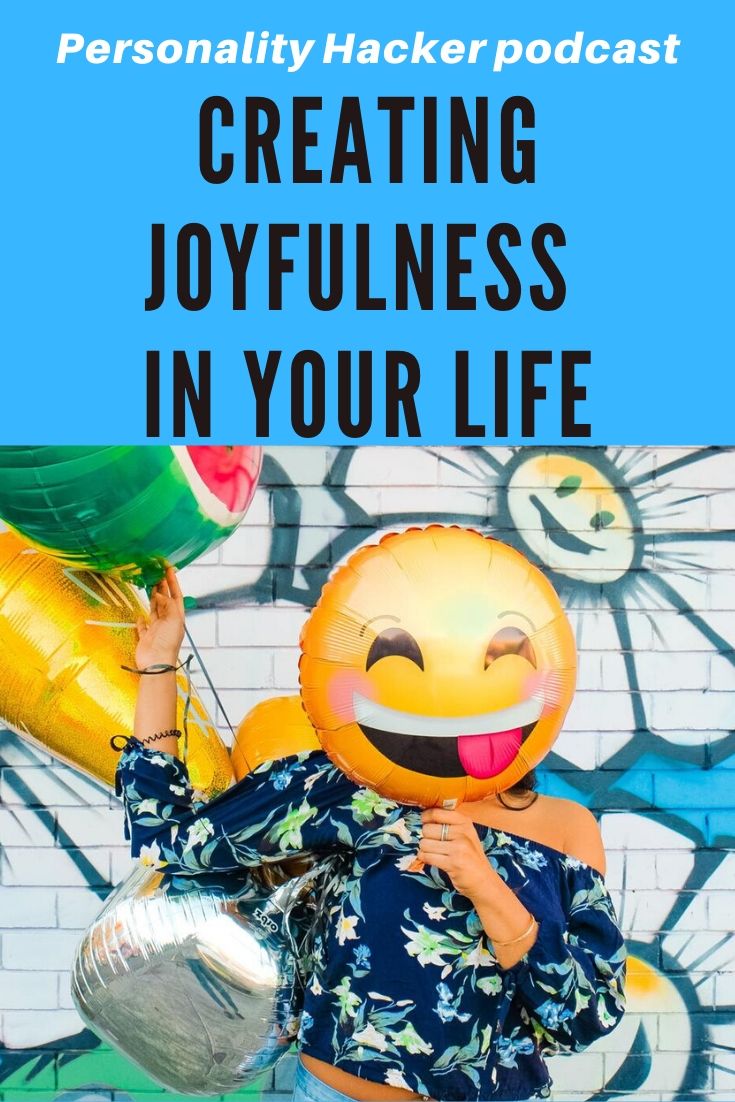Download Episode Here – right click link and select “Save Link As…”
In this episode, Joel and Antonia talk about using a system thinking approach to create joyfulness in your life.
In this podcast you’ll find:
- What does joyfulness look like when we are a child and as we develop through life?
- Happiness coming from “within” and “without”.
- The idea of joy as an emergent of a system – and seeing it as something we need to build skill around.
-
How do we build a system where the “internal” and “external” work together to create joy as often as possible?
- Viewing this as a more empowering framework
-
The maturity and skill development levels of creating joy:
- Reactiveness – why do we trust our reactive emotions?
- Responsiveness – developing the skill to pause before responding
- Proactiveness – displaying the emotion you want to feel – and why this is difficult
- Tony Robbins’ “empowering and disempowering rules” – how this fits into creating joy.
- Reaching a place of curiosity – how this can be empowering and differs from other emotions
-
The importance of proactivity and “end game”
- Pre-determining thinking and feeling
- How could thinkers and feelers experience this differently?
- Approaching a situation with an emotional or thought framework
- Some thoughts and an example of pre-programming joy
- How does an ability to be present affect joy?
- Why simply being “blissed out” isn’t building skill development around joy.
- Outrage culture and how this can detract from reaching a more empowered state.
-
What skills do we need to build in the outer world in order to have joyfulness?
- The role of “purpose”
- Choosing “acting” over “articulating”
- Why having a goal makes you build skills
- Merging with something outside of ourselves to achieve a transcendent frame – in The Righteous Mind Jonathan Height talks about how there is 10% of us that craves something bigger.
- We all unconsciously decide what we’re going to feel before we feel it.
- Exception thinking and “the disempowering rule” when it comes to joy.
To subscribe to the podcast, please use the links below:
Subscribe with iTunes
Non-iTunes Link
Soundcloud
Stitcher
Google Play
Spotify
Radio Public
PlayerFM
Listen Notes
If you like the podcast and want to help us out in return, please leave an honest rating and review on iTunes by clicking here. It will help the show and its ranking in iTunes immensely! We would be eternally grateful!
Want to learn more?
Discover Your Personal Genius
We want to hear from you. Leave your comments below…



Share:
Podcast - Episode 0328 - Managing Big Life Changes During A Pandemic
Podcast - Episode 0330 - The Binary Nature Of The 3-Yr-Old Inferior Cognitive Function
8 comments
ENTP here. No insights here as ENTPs don’t need results to create inner states. As far as people-dependent joy, ENTPs don’t find themselves wrapped up in that either (esp. female who are a pretty low percentage.) But an “emergent system” design is a complete carrot for me. The rust in my system is always MEMORY-contingent (car diagram.) After listening, I decided the use of an egg timer would turn my world upside down and turn drudge into joy.
I’ll let you know how it goes because I choose choosing.
Great job guys.
INTJ here.
I was reminded of a movie “Life Is Beautiful”, about a man who was captured by Nazis and sent to Auschwitz along with his son. He made all the hard labor and punishment into a game/contest for the benefit of his son, saying that the winner at the end would win a tank.
Yes it is all about perspective, and learning to keep an undercurrent of quiet contentment through all difficulty. Like Antonia, I prefer the terms “quiet contentment” or “inner peace” to “joyfulness”. It took me decades, but was all worth it.
Intp here. What’s coming up for me is the concept of “what doesn’t kill me makes me stronger”. Framing challenges and even traumas as something that serves you or brings benefit to you, teaches you lessons, or builds strength. It’s hard to look at it that way in the midst of it all, of course, but in hindsight I love to look at my past traumas as something that has made me strong and wise. When someone in my life is going through something, I love to share some of my past traumas and reveal that I got through it and now feel gratitude towards them because I’m such a strong and wise person now. One may call it desensitized but I call it wisdom and strength.
Also, I love how Antonia pointed out the wheel of emotions being an aha moment for thinkers. It’s so true! I spent so much time researching and analyzing this concept. Of course i probably took it too far (hyperfocusing on it), but nevertheless the concept gave me so much insight. I loved your episode on the movie “inside out” for this reason. That’s a very “lite” version of the concept, but is a great introduction to the deeper concept. If I ever have children I am definitely going to use that film as a resource for them.